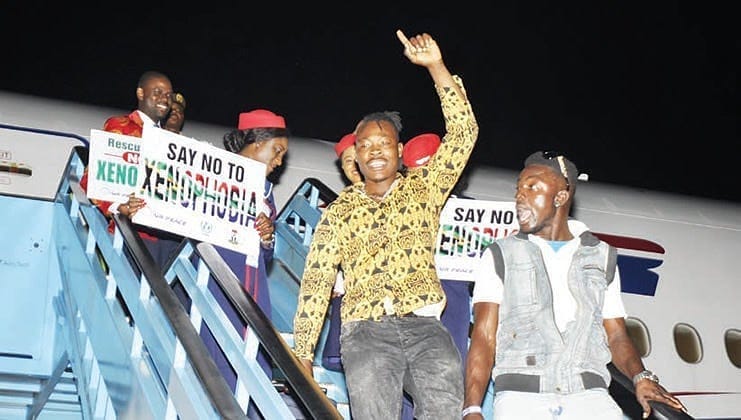To mend fences with African countries whose nationals were victims of recent xenophobic attacks targeted at foreign African residents in South Africa,
President Cyril Ramaphosa dispatched three special envoys to seven African countries to deliver messages of apology and solidarity on 15 September.
Analysts across the continent are interpreting the gesture and its likely impact on the future safety of foreign African nationals living in South Africa and the country’s relations with the rest of the continent.
In his intervention, Daniel Bwala, a senior assistant to the Deputy Senate President of Nigeria, has said that Ramaphosa’s apology does not guarantee an end to xenophobic attacks on foreign nationals living in South Africa.

Speaking as a guest on a programme on CNBC Africa, Bwala said xenophobic attacks were not orchestrated by the South African authorities. He said it would be wrong to assume xenophobia would end as “it is an expression of disgruntled youths.”
“I would believe this will be the end of it if, for example, I hold the view that it is a covert operation by the South Africa intelligence through the use of the citizens. Then I would have said because of the steps of the president, I believe this will stop,” said Bwala.
To put an end to xenophobia, Bwala urged the South Africa government to amend their laws that will give their citizens the opportunity to compete more favourably in the economy.
“Crime is a crime, whether it is stealing, assault or xenophobic attack. And if anybody commits a crime, there is a constitutional and legal way of addressing that issue,” Bwala, a lawyer, noted.
The legal practitioner warned that if the South Africa authority failed to bring perpetrators of xenophobic attacks to book, they could affect the country’s position in Africa.
“When a country fails to act in this kind of situation, that country is gradually isolating itself from the commonwealth of Africa. And over a period of time, crime perpetrated by people who are disgruntled will now become part of foreign policy and it will affect foreign relations,” said Bwala.

Nigeria’s President Muhammadu Buhari is expected to visit South Africa on October 3, 2019, to reinforce the bonds between the two countries.
When asked about Buhari’s agenda, Bwala said “I read somewhere that part of the discussion that will be on the table will be a compensation package for the Nigeria victims.”
READ ALSO South Africa sends envoys to seven countries over xenophobic attacks
He added that he was not sure if compensation would be a reality, stressing that “one of the weaknesses of international politics is the weakness of engagement.”
“I think that the world is looking at the government and democracy in South Africa and how they deal with situation like that,” said Bwala.
According to him, Nigeria could never be South Africa’s enemy, knowing the role it played in the fight against apartheid.
Raphael Adenaike
 THE AFRICAN COURIER. Reporting Africa and its Diaspora! The African Courier is an international magazine published in Germany to report on Africa and the Diaspora African experience. The first issue of the bimonthly magazine appeared on the newsstands on 15 February 1998. The African Courier is a communication forum for European-African political, economic and cultural exchanges, and a voice for Africa in Europe.
THE AFRICAN COURIER. Reporting Africa and its Diaspora! The African Courier is an international magazine published in Germany to report on Africa and the Diaspora African experience. The first issue of the bimonthly magazine appeared on the newsstands on 15 February 1998. The African Courier is a communication forum for European-African political, economic and cultural exchanges, and a voice for Africa in Europe.





























